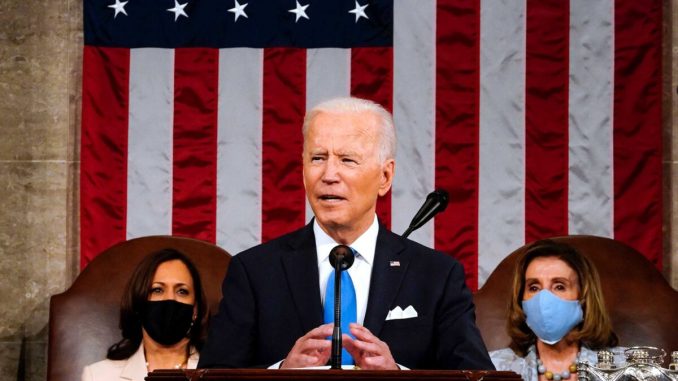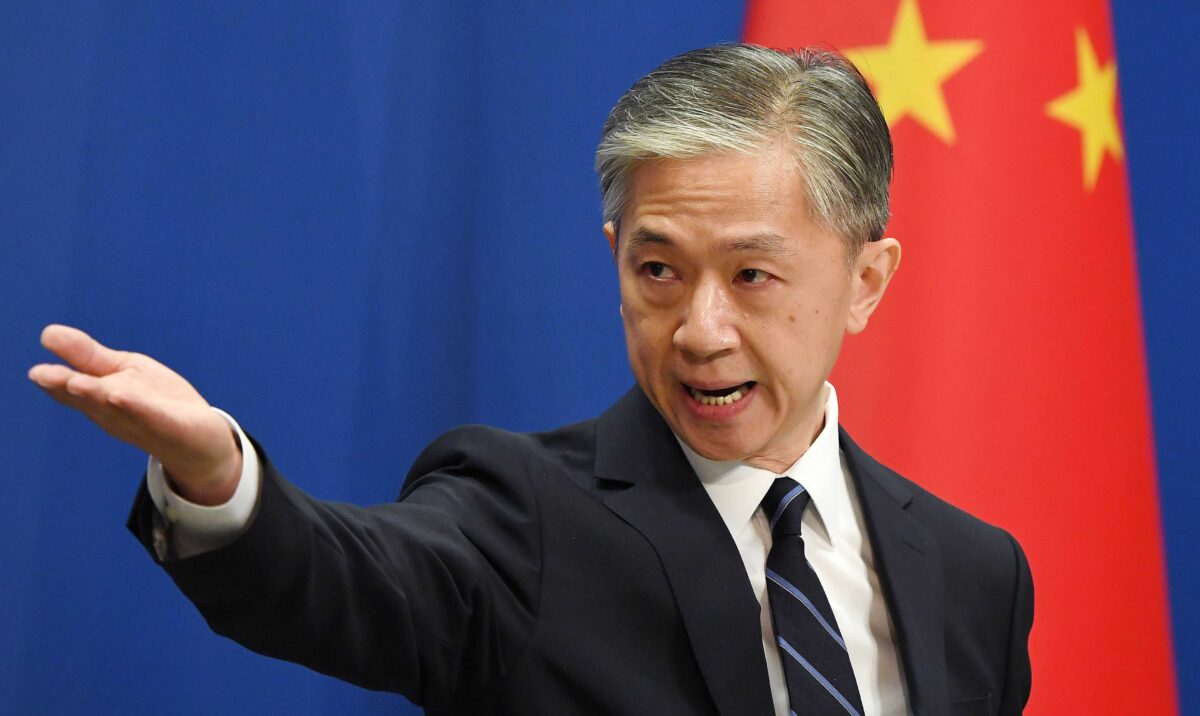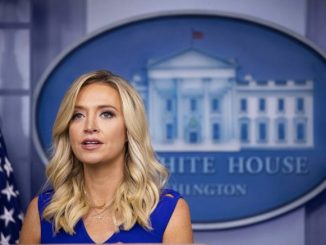
Commentary
On April 28, U.S. President Joe Biden gave a speech to Congress in which he raised the issue of competition with the Chinese Communist Party (CCP) in the 21st century. In a rare move, the CCP’s Ministry of Foreign Affairs responded swiftly, accusing the U.S. government of desecrating democracy and breaking international rules.
When talking about democracy, Biden said in his speech that “autocrats will not win the future.” When addressing economic issues with the Chinese regime, Biden said that the United States would “defend America’s interests across the board” and that “America will stand up to unfair trade practices that undercut workers and American industries like subsidies from state to state-owned operations and enterprises and the theft of American technology and intellectual property.”
Regarding the CCP’s growing aggression on the world stage, Biden said that “we’ll maintain a strong relationship in the Indo-Pacific.” He said he had told his Chinese counterpart, Xi Jinping, that “America will not back away from our commitments, our commitments to human rights and our fundamental freedom.” But he said he had also told Xi that the United States is “not looking for conflict.”
Facing the Chinese regime’s constant provocations, Biden chose a softer stance than his predecessor, saying that the United States is “in competition with China.” The CCP’s Ministry of Foreign Affairs, however, maintains its tough stance, showing no appreciation for Biden’s conciliatory strategy; on the contrary, it once again hurled insults in return.

At his regular press conference on April 29, CCP Ministry of Foreign Affairs spokesman Wang Wenbin was asked by an AFP reporter to comment on Biden’s address to a joint session of Congress. Wang responded by saying that the United States is trying to “instigate intolerance in the name of ‘democracy,’” which he said “is nothing but an insult on and a travesty of democratic values.” He added that “the U.S. has repeatedly violated international rules and market principle of fair competition.”
Wang could not have made these remarks in isolation, as remarks on such topics need the prior approval of the CCP’s top brass. The CCP overnight had prepared a response that was ready to be announced at a press conference as soon as daily routine started. Such an unusually quick response indicated that the top echelon of the CCP takes this matter very seriously.
On April 20, Xi delivered a speech via video conference at the Boao Forum for Asia. During the speech, Xi repeatedly spoke of “major changes in the world,” “global governance,” and “a community with a shared future for mankind.” He said that the CCP had been in “pursuit of great unity for the whole world,” and he addressed the United States directly, saying, “We must not let the rules set by one or a few countries be imposed on others.”
“What the world needs is justice, not hegemony,” Xi said in his speech, adding that “big powers should behave in a manner befitting their status.”
Xi’s words were clearly more assertive than Biden’s. Xi openly declared an intention to contend for hegemony with the United States, while Biden downplayed the adversarial relationship as “competition with China.”
The CCP does not respond in kind when faced with a softer approach. Naturally, in response to the Biden administration, it immediately went on the offensive. Wang even ridiculed the United States at his press conference, saying that it shouldn’t have a “sour grapes mentality” toward China.
CCP mouthpiece Xinhua published on April 29 a related report titled “Wang Wenbin says he hopes the U.S. will not have sour grapes mentality toward China.” The next day, Xinhua also wrote on its Weibo public account, “Wang Wenbin said it is the usual tactic of the United States to concoct so-called annual report on Adherence to and Compliance with Arms Control, Nonproliferation, and Disarmament Agreements and Commitments,” again quoting Wang’s reply to a China Daily reporter’s question at the Q&A session of his press conference.
In the U.S. State Department’s annual report, the department found that “China continued work at its Lop Nur nuclear weapons test site throughout 2020,” which “raised concerns regarding its adherence to the U.S. ‘zero yield’ standard adhered to by the United States, the United Kingdom, and France in their respective nuclear weapons testing moratoria” due to “the lack of transparency on its nuclear testing activities.”
The report also states, “The People’s Republic of China (China) has failed to adhere to its November 2000 commitment to the United States not to assist ‘in any way, any country in the development of ballistic missiles that can be used to deliver nuclear weapons (i.e., missiles capable of delivering a payload of at least 500 kilograms to a distance of at least 300 kilometers).’”
The report also raises concerns regarding the CCP’s compliance with the Biological Weapons Convention. “Questions and concerns on its compliance with the Convention have been raised since the 1993 Report,” it states.

Wang, of course, strongly denied it, saying that the United States was “making wanton comments on other countries’ arms control and non-proliferation policies” in an attempt to “divert international attention and smear other countries.” Wang also claimed in his press conference that the United States is “notorious for its misdeeds” and once again played the game of shirking the CCP’s responsibility for the pandemic onto the United States by asking: “Why did (the United States) build so many bio-labs all over the world? How can it prove all its activities are in line with the Convention?”
In his speech to Congress, Biden was clearly not tough enough on the CCP, and once again evaded the issue of holding the CCP accountable for the global CCP virus pandemic, which resulted in the CCP immediately getting defensive and escalating its tit-for-tat attitude with the United States. In response to U.S. officials’ accusations of the CCP’s “coercive diplomacy” and “economic and military coercion,” Wang countered that “classic cases of U.S. ‘coercive action’ have resulted in war and turmoil and human tragedy” and that the CCP is “not a perpetrator, but rather, a victim of ‘coercive diplomacy.’”
I wonder if Biden’s staff will see in time the aggressive response of the CCP. A defensive “competition” strategy against the CCP would not only fail to make the CCP follow international rules, but would also allow the CCP’s top brass to maintain its previous misjudgments. The new U.S. administration has yet to develop an effective strategy to deal with the CCP’s constant and open provocations in diplomacy, military affairs, and political propaganda. If Biden really wants to join forces with allies against the CCP, he will need to show more courage and a more proactive strategy. Otherwise, the U.S. may be in bigger trouble and its leadership in the Western world may be in question.
Yang Wei has been closely following China affairs for many years. He has been contributing political commentary on China for the Chinese language Epoch Times since 2019.
Views expressed in this article are the opinions of the author and do not necessarily reflect the views of The Epoch Times.





Be the first to comment